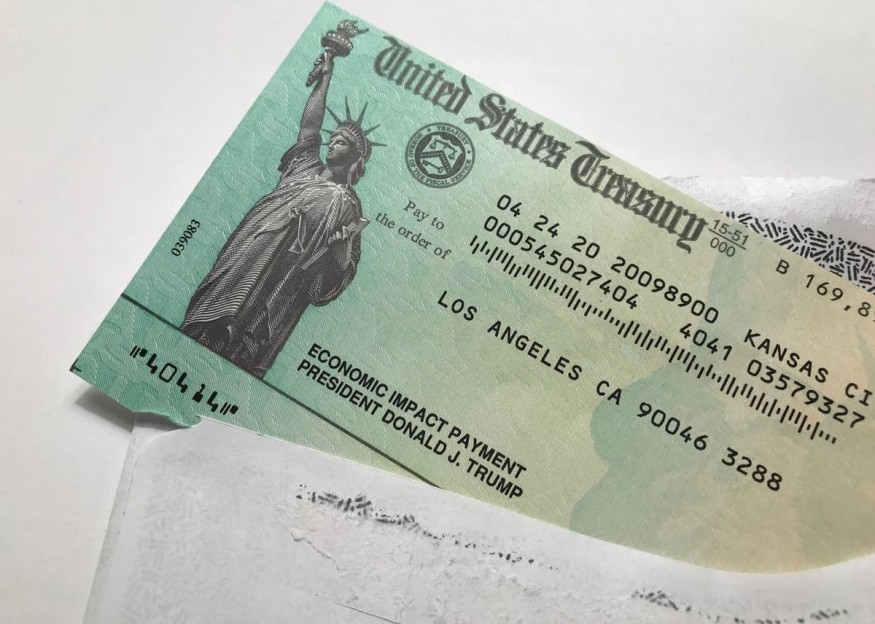Lawmakers Balk At White House's $1.8 Billion Stimulus Offer

Both Senate Republicans and House Democrats expressed disapproval to White House's $1.8 trillion stimulus plan. The decision clouded the chances for a compromise again until Election Day.
Multiple Senators joined a Saturday morning conference call with White House staff chief Mark Meadows and Treasury Secretary Steven Mnuchin. During the call, multiple Senate Republicans declined to pass another broad assistance package. Mr. Meadows said he would report their complaints to President Trump. He predicted a less than friendly welcome.
Senate Republicans' pushback came after the White House raised its bid to House Speaker Nancy Pelosi on Friday. According to them, the White House is attempting to find a compromise on the latest COVID-19 stimulus plan before the election.
According to a source familiar with the deal, the current bid asks for more than $1.8 trillion in investment. Around $400 billion of the funds should be reallocated from unspent funding from prior legislation, taking the overall expense to about $1.5 trillion.
"At this point, we still have disagreement on many priorities, and Democrats are awaiting language from the Administration on several provisions as the negotiations on the overall funding amount continue," Mrs. Pelosi wrote.
The bigger budget, the better
Mrs Pelosi identified many legislative provisions that are an issue throughout the talks. Aside from the stimulus plan itself, they also tackled child care and assistance for state and local governments.
Senate Republicans' strong resistance would also hinder the attempts of the White House's way to find a deal with Democrats. Mr Mnuchin had suggested before Friday that the administration might accept a $1.6 trillion proposal, a lower amount that had been criticized by certain Republicans as well.
Last month, Senate Republicans mobilized behind an assistance plan that calls for investing approximately $650 billion, supplemented by cuts of approximately $350 billion elsewhere at a cumulative expense of around $300 billion.
GOP lawmakers told Trump administration officials on Saturday that, according to people familiar with the call, the Republican bill could be the starting point for talks with Democrats. They called such a stimulus plan 'excessive.'
Issues at hand
One key point of controversy among Senate Republicans is the clause of the White House plan to extend the subsidies of the Affordable Care Act, and employer-sponsored health care.
Most Republicans are resistant to the ACA's extension, which they have protested for years and tried to repeal. Some Republicans still believe their limits on abortion funding to be inadequate and see the extension of subsidies as compounding the problem. According to GOP aides, they told Mr. Mnuchin that such a clause was unreasonable.
According to the citizens, during the call, Sen. John Barrasso said a potential extension to eligibility for subsidies under the Affordable Care Act would reflect a "enormous betrayal."
Republicans simply rejected the extension of the ACA, Democrats said. According to them, the health legislation also forbids the usage of discretionary funding made accessible to customers for certain abortions by grants and tax benefits Health exchange programs can cover other abortions. Still, extra money needs to be put aside so that it doesn't benefit from government subsidies.
Efforts to find consensus on another phase of assistance to households and companies suffering through the pandemic of coronavirus have been whipsawed over the week.
Is Trump's decision irriversible?
After a conference conversation with top Republicans, including Senate Majority Leader Mitch McConnell, Mr. Trump called off talks on Tuesday. On the call, Mr. McConnell told Mr. Trump the, according to a source familiar with the call, any deal between Mr. Mnuchin and Mrs. Pelosi will be impossible to approve in the GOP-controlled Senate.
Mr. Trump and the administration then switched to lobbying for bills concentrating on specific aid goals. These included airline support before resuming negotiations with Democrats on a larger plan.the $1.8 trillion bid presented on Friday is the biggest plan by the Trump administration. The talks started in July and have dragged on for weeks.
Economists warn that, without another relief package, brief cuts will become irreversible and more firms will shutter, characteristics of a normal slump rather than the brief shock and swift recovery wished for earlier this year by policymakers.
Jerome Powell, chairman of the Federal Reserve, said this week that the dangers of Congress had very little economic assistance are higher than the risks of having too many. The former could contribute to a slower, lower recovery, he said.
Check These Out
Senate GOP Unity on New Stimulus Package to Get Divided by Sen. Cruz's School Choice Plan
Pelosi to Introduce $2.4 Trillion Stimulus Package with Direct Payments
Next COVID-19 Relief Package: Stimulus Checks for Undocumented Immigrants May Be Possible
Subscribe to Latin Post!
Sign up for our free newsletter for the Latest coverage!
© 2026 Latin Post. All rights reserved. Do not reproduce without permission.















